
Fathers baking bread: breaking stereotypes and promoting gender equality
In December 2020, five men from Straseni, Falesti and Chisinau, with different social and family backgrounds, met for a quite uncommon activity — to bake bread and discuss how to break down the stereotypes related to the traditional activities for men and women in the society and promote the image of a father engaged in the family.
The baking workshop, intended to promote gender equality, was organised by the United Nations Population Fund (UNFPA) as part of the ‘EU 4 Gender Equality: Together against Gender Stereotypes and Gender-Based Violence’ regional programme, funded by the European Union and implemented jointly by UN Women and UNFPA.
Alexandru Trohin is a wrestling trainer. He has a gym in Straseni, attended by over 100 children and adolescents, and he teaches them how to become engaged men in the future. Moreover, he encouraged his daughter, Alexandra, to practice wrestling as well, side by side with boys, and thus feel confident in herself and have equal chances.
“Since we were children, we saw families where the mother was in the kitchen, and the father was at the head of the table. Then I thought to myself that in my family everything would be different. I do not ask to be cooked for or to be served. I can also cook. I also think it is normal for a father to discuss with his daughter about age-related transformations or relations with boys. I am very open if it is my daughter’s choice to discuss these topics with me. I will always be there to share her emotions and fears,” said Alexandru.
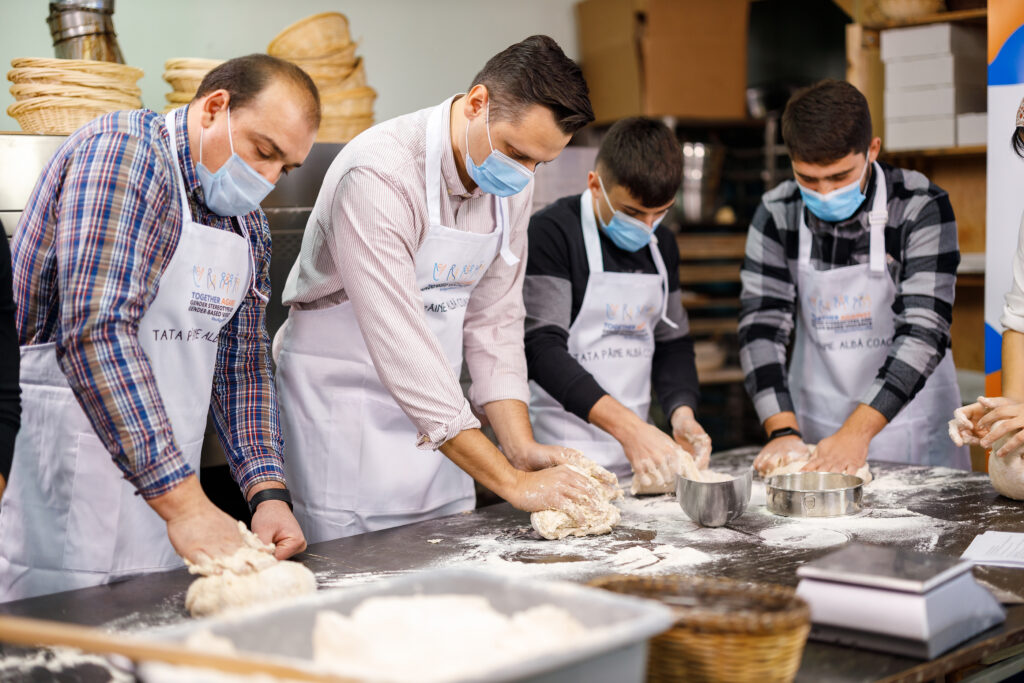 Fathers baking bread
Fathers baking bread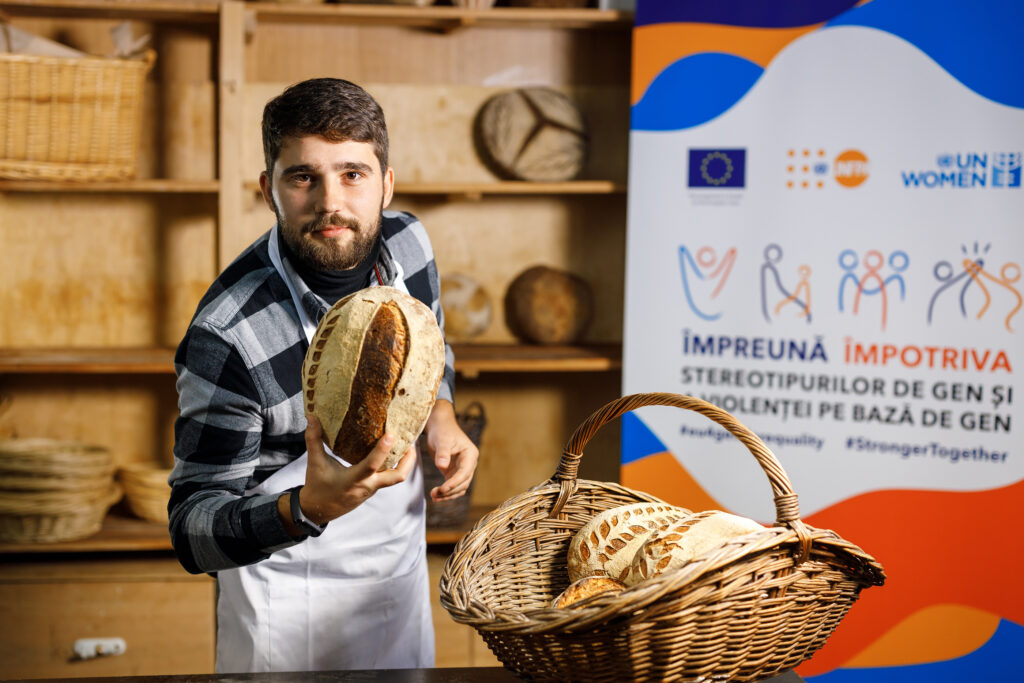 Ion Andronache, blogger and active promoter of gender equality
Ion Andronache, blogger and active promoter of gender equality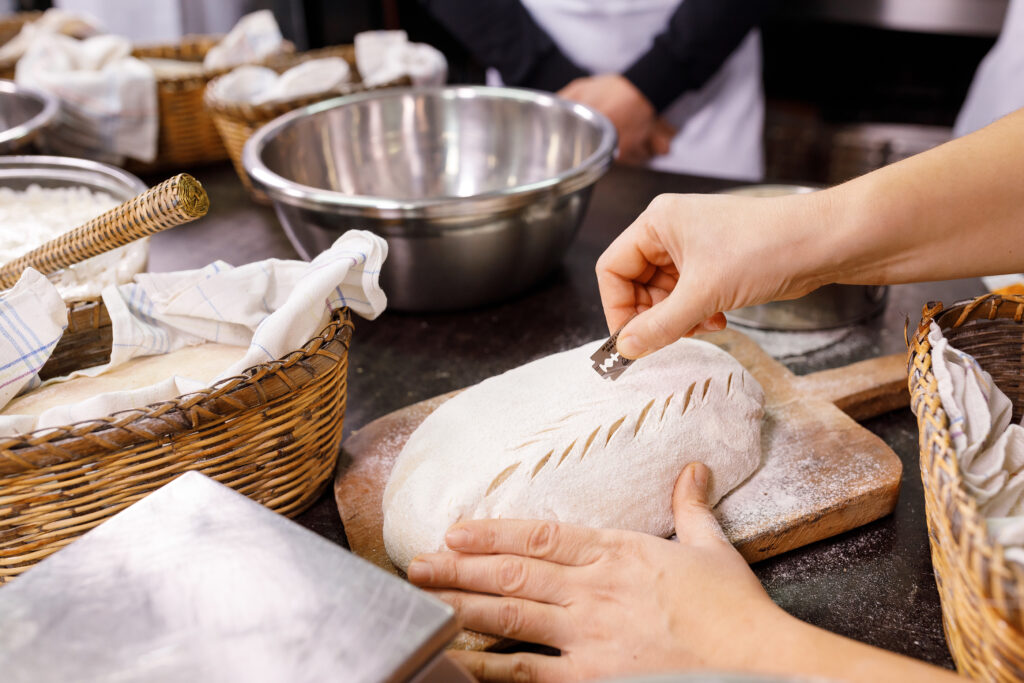 Fathers baking bread
Fathers baking bread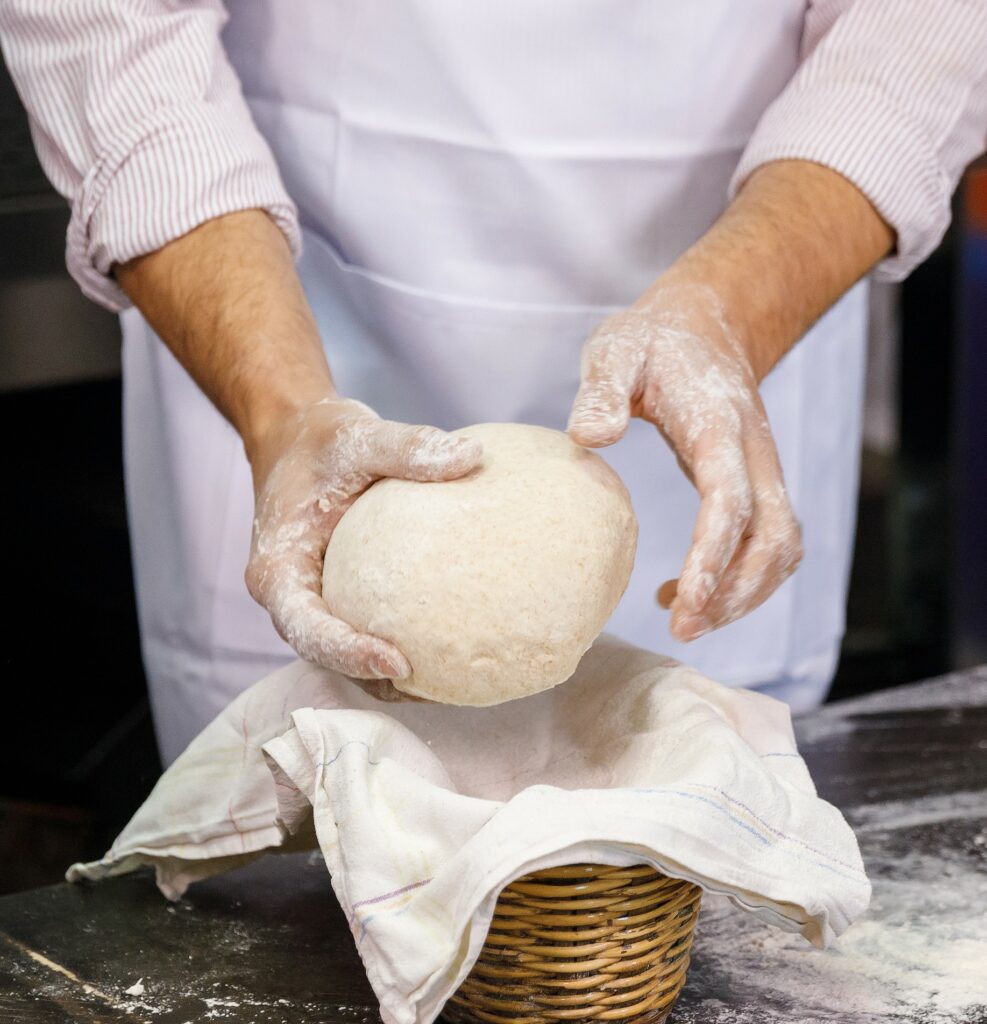 Fathers baking bread
Fathers baking bread
When setting up their family, Ion and his wife decided to have three children and that they would offer them all the time they would need. Alina and Ion Andronache are an example of equal and unequivocal sharing of household and parental duties, which brings fulfillment and harmony in their family.
“Stereotypes and gender roles have no place in our family. We have seen certain stereotypes in our family, with our mother and father, and decided that in our newly established family there will be no stereotypes and gender roles. Why? Because sometimes the gender roles are the cause of family squabbles or even family breakdown. The more gender equality in the family — in raising and educating children, in doing the household chores — the less violence and grounds for violence in the family,” said Ion Andronache.
Sergiu Guzun is the director of the Panilino company and used to be regarded as authoritarian, especially when he had to accept his employees’ requests for maternity leave. But things changed when he became a father. Now he is encouraging the engagement of men, both at work and at home, and has made this a part of Panilino’s organisational culture.
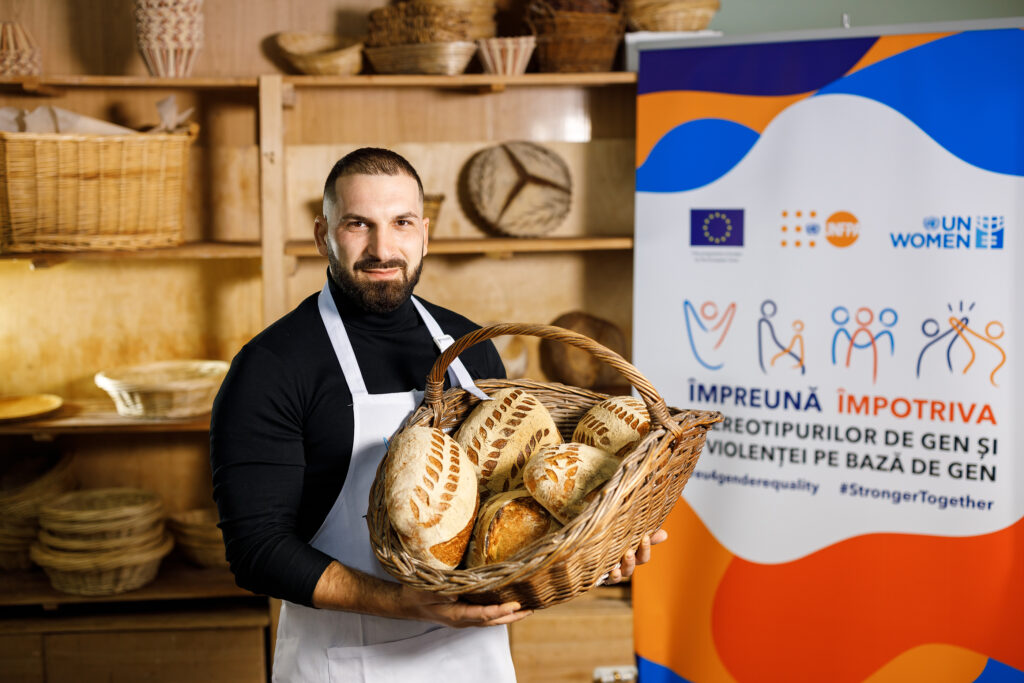 Alexandru Trohin, father of a 12-years old girl from Strășeni
Alexandru Trohin, father of a 12-years old girl from Strășeni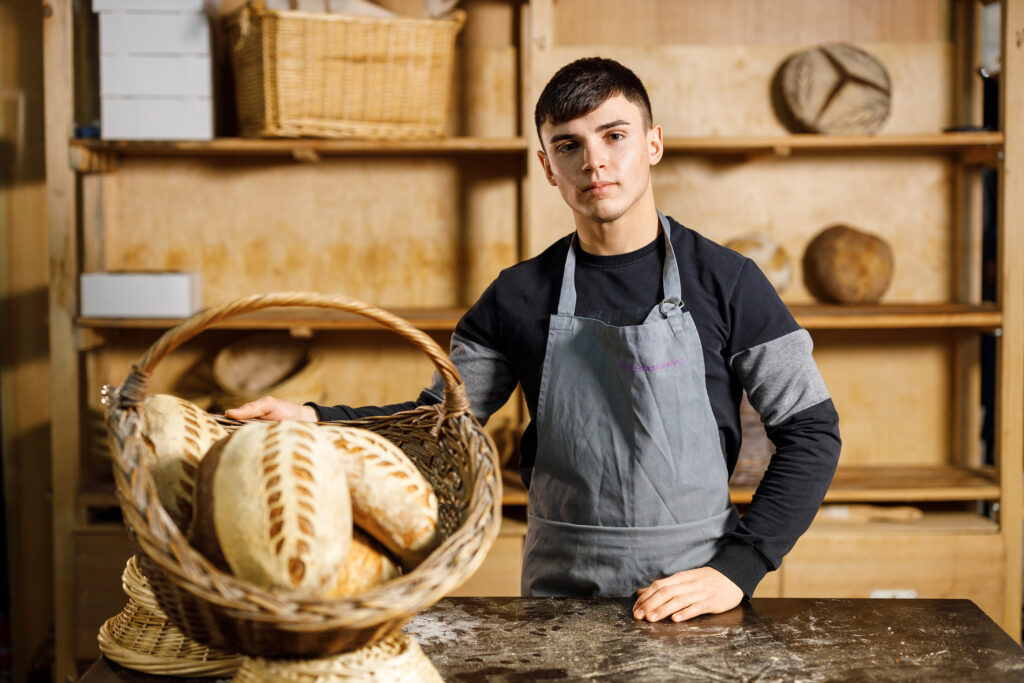 Catalin Roman
Catalin Roman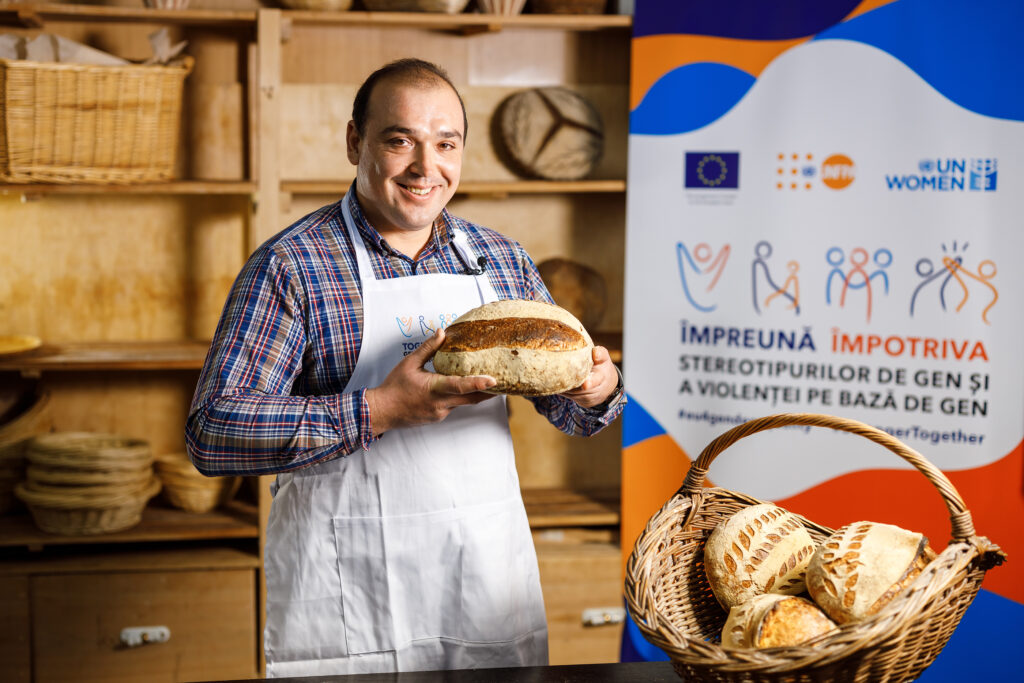 Nicolae Gheorghita
Nicolae Gheorghita
“At Panilino we have several policies on employing women after maternity leave. We also encourage men working at Panilino to take paternity leave, while couples working with us enjoy a flexible working schedule, so that both can grow professionally and do the household chores on equal terms,” said Sergiu Guzun.
Surveys in Moldova show that eight out of ten people believe that a man should be the bread winner, and a woman should do the household chores and take care of children, which sometimes results in conflicts or abuses. Challenging gender stereotypes about women’s and men’s roles in the family can contribute to a decrease in gender-based violence incidents in the long term, which is why the ‘Father is baking white bread’ workshop was organised in the framework of the ‘16 Days Against Gender-Based Violence’ campaign.
This article was produced in the framework of the ‘EU 4 Gender Equality: Together against gender stereotypes and gender-based violence’ programme, funded by the European Union, implemented jointly by UN Women and UNFPA. The programme aims to strengthen equal rights and opportunities for women and men by challenging perceptions about men’s and women’s roles in the family and in society and working to eliminate gender-based violence.
MOST READ
SEE ALSO

No, time is not on Russia‘s side

How to open an art business in Moldova: the experience of Alexandra Mihalaș

Be one step ahead of a hacker: check simple cybersecurity tips!
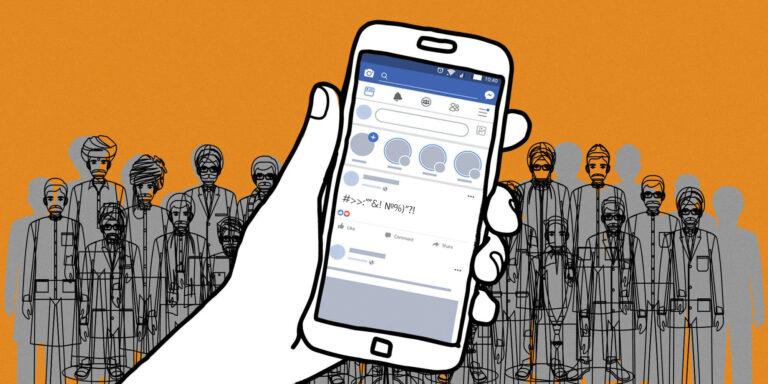
How to act and move on: strategies for women facing discrimination and online harassment
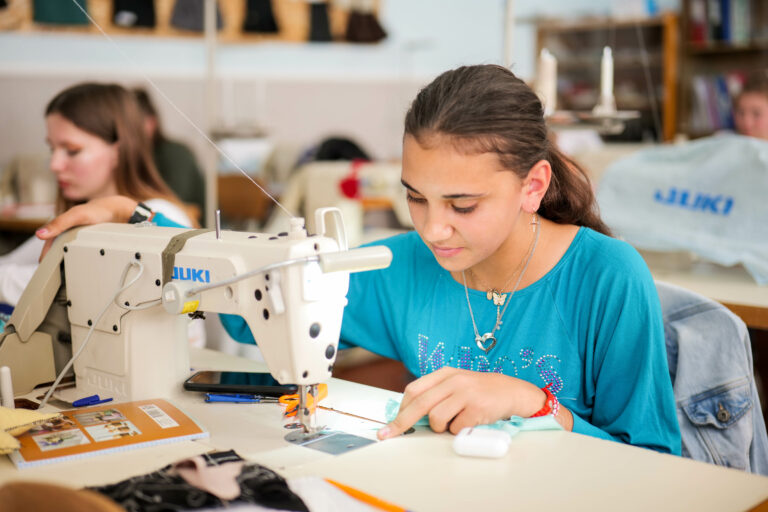
‘Learning is not a process but a journey’: the example of a school in Orhei
More campaign pages:
Interested in the latest news and opportunities?
This website is managed by the EU-funded Regional Communication Programme for the Eastern Neighbourhood ('EU NEIGHBOURS east’), which complements and supports the communication of the Delegations of the European Union in the Eastern partner countries, and works under the guidance of the European Commission’s Directorate-General for Neighbourhood Policy and Enlargement Negotiations, and the European External Action Service. EU NEIGHBOURS east is implemented by a GOPA PACE-led consortium. It is part of the larger Neighbourhood Communication Programme (2020-2024) for the EU's Eastern and Southern Neighbourhood, which also includes 'EU NEIGHBOURS south’ project that runs the EU Neighbours portal.

The information on this site is subject to a Disclaimer and Protection of personal data. © European Union,







